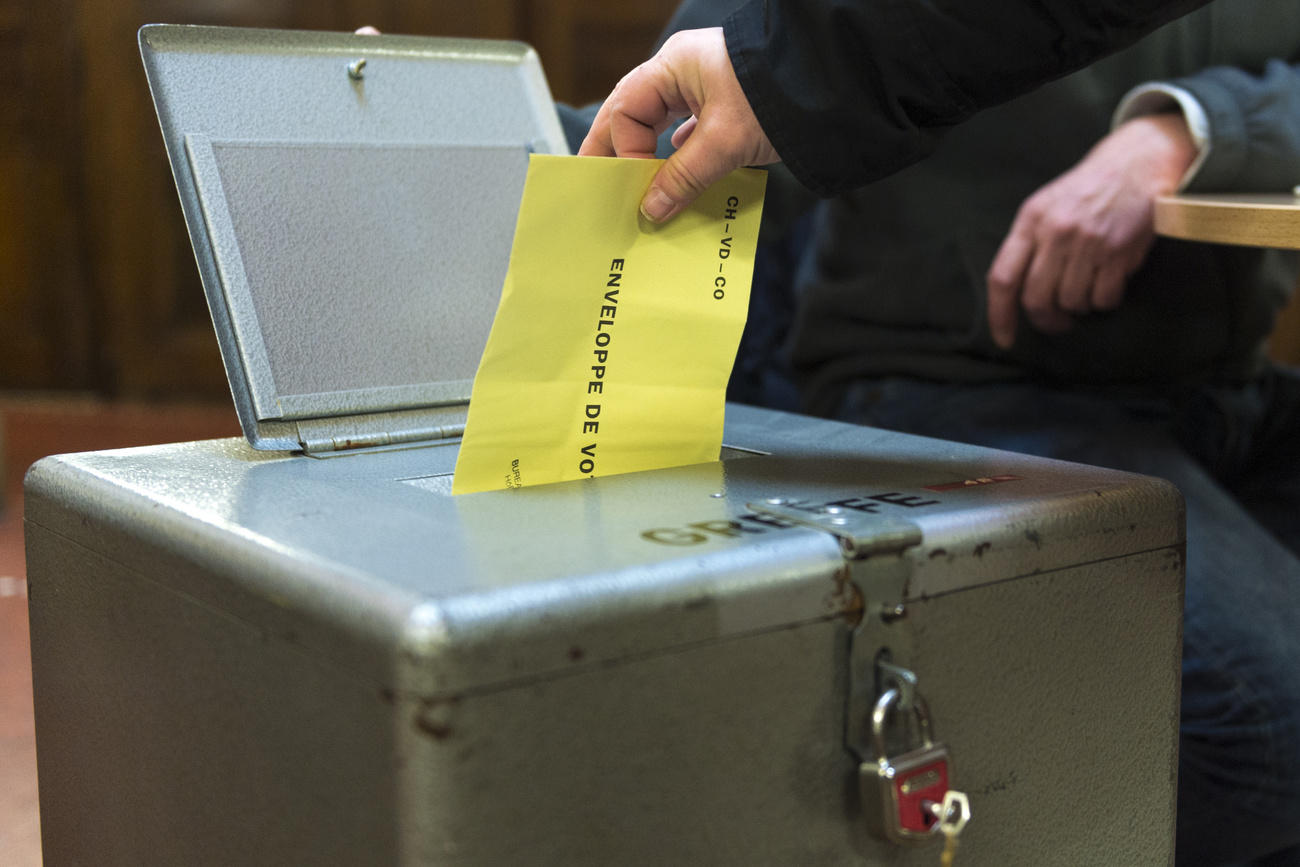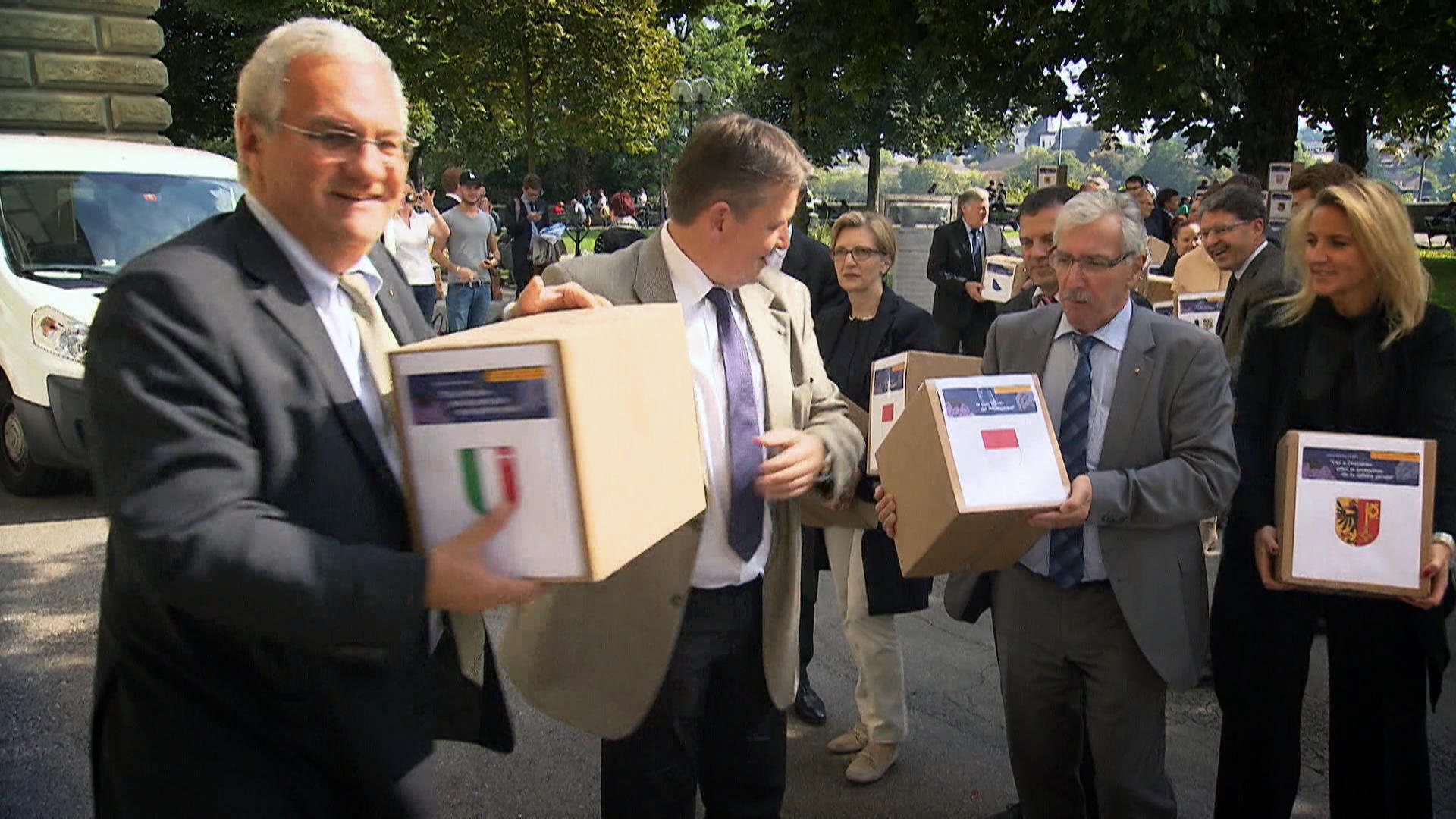Voters opt for radical measures in anticipation of soft implementation

According to a study, around 6% of Swiss voters approve a people’s initiative that they consider too radical, believing that the government will soften it when it is implemented.
The study published on Thursday was carried out by the Centre for Studies on Democracy External linkin Aarau. It analysed for the first time the prevalence of “compensatory votes” in people’s initiatives on the basis of the Vox analyses from 1993 to 2005.
A people’s initiative allows citizens to put an idea on any topic to national vote, as long as they collect the requisite 100,000 signatures within a period of 18 months. Since 1891, when the idea of the initiative as a way of amending the constitution was introduced, over 400 such initiatives have been launched.
A large number of these never reached the people for a vote, because the required number of signatures were not gathered, or the initiative was withdrawn before voting day.
While 6% were found to vote this way on average, the value varies considerably from one initiative to another. The highest prevalence of compensatory voting was 14.8% (the 1996 people’s initiative against illegal immigration). It had the lowest prevalence in the 2001 people’s initiative to join the European Union (2.2%).
This kind of compensatory voting generally occurs when a voter feels the implementation of the initiative will be decided by bodies (usually parliament and the government) that have hitherto opposed it. Older voters are also more likely to vote this way as they are more likely to have seen an initiative diluted during implementation. Trust in institutions also influences compensatory voting. The less trust a voter has in the government, the more likely they are to vote in this way.
The result of a vote is therefore never the exact reproduction of the “true will of the people”, the study concludes. This situation presents a risk because the legitimacy of decisions in direct democracy is based on the assumption that they reflect the individual political attitudes of voters.
However, compensating voters do not endanger democracy, according to Thomas Milic, co-author of the study. Voters are above all rational beings “who, like chess players, try to anticipate the next steps. Our analysis shows that they are often right.”

More
The four ingredients of a successful people’s initiative

In compliance with the JTI standards
More: SWI swissinfo.ch certified by the Journalism Trust Initiative



You can find an overview of ongoing debates with our journalists here. Please join us!
If you want to start a conversation about a topic raised in this article or want to report factual errors, email us at english@swissinfo.ch.